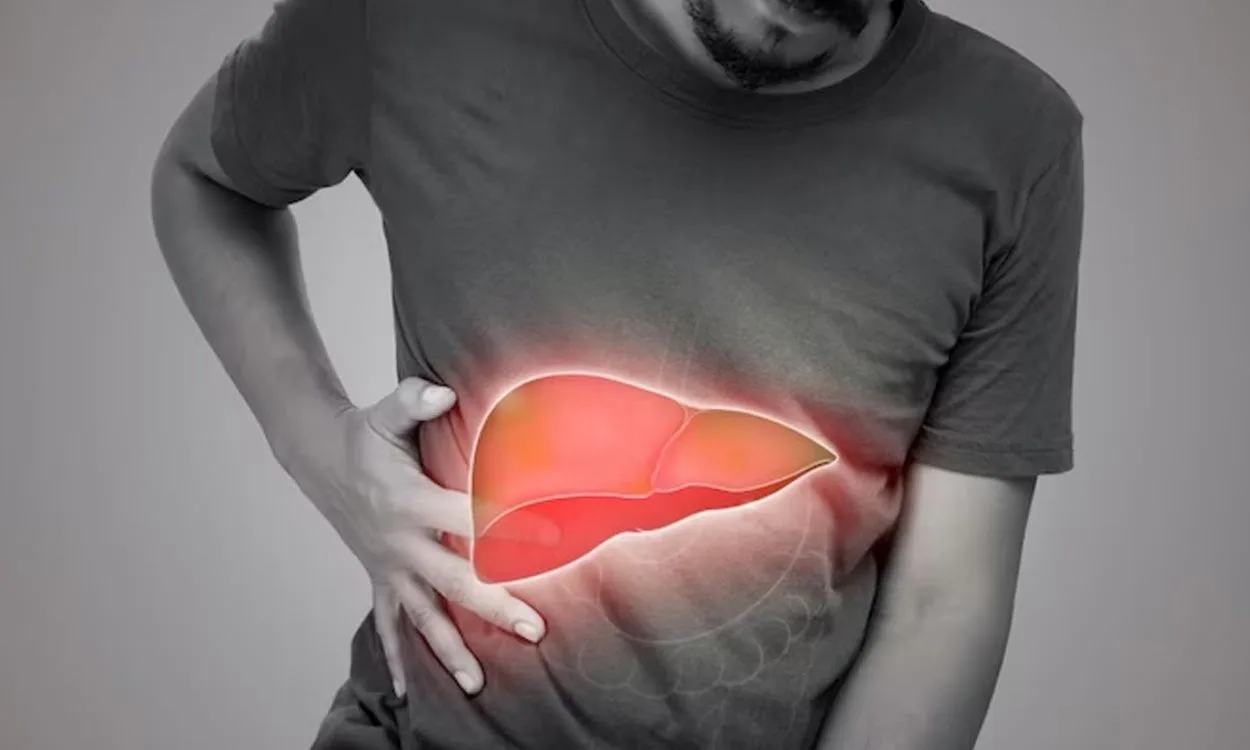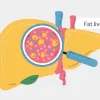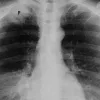Does Fatty Liver Affect Digestion? Discover the Impact and Find Solutions with Fitpaa
Introduction
Fatty liver, also known as hepatic steatosis, is a condition characterized by the accumulation of fat in the liver cells. This condition is becoming increasingly common in India due to factors such as sedentary lifestyles, unhealthy eating habits, and obesity. While fatty liver is often associated with liver damage and impairment of liver function, its impact on digestion is a topic of interest. In this article, we will explore the connection between fatty liver and digestion and understand how this condition can affect the digestive process.
Understanding Fatty Liver
Before we delve into the impact on digestion, it’s important to have a basic understanding of fatty liver. As mentioned earlier, fatty liver occurs when excess fat accumulates in the liver cells. This can happen due to a variety of reasons, including excessive alcohol consumption, obesity, insulin resistance, and certain medical conditions.
The liver plays a crucial role in digestion as it produces bile, a substance that helps break down fats in the intestines. However, when the liver becomes fatty, its ability to produce and release bile may be compromised. This can have a direct impact on digestion.
Impact on Digestion
- Impaired Fat Digestion: The liver is responsible for producing bile, which helps in the digestion and absorption of fats. In cases of fatty liver, the liver may not produce sufficient bile, leading to impaired fat digestion. This can result in symptoms such as bloating, indigestion, and diarrhea after consuming fatty foods.
- Reduced Nutrient Absorption: The liver plays a crucial role in the absorption of nutrients from the digestive tract. When the liver is fatty, its ability to process and absorb nutrients may be compromised. This can lead to deficiencies in essential vitamins and minerals, affecting overall digestion and nutrient absorption.
- Increased Inflammation: Fatty liver is often associated with inflammation in the liver. Chronic inflammation can extend beyond the liver and affect the gastrointestinal tract, leading to conditions such as irritable bowel syndrome (IBS) and increased gut permeability. These conditions can further disrupt the digestion process.
- Altered Gut Microbiome: Research suggests that fatty liver can also impact the composition of the gut microbiome, which plays a crucial role in digestion. Imbalances in the gut microbiome have been associated with various digestive disorders, including inflammatory bowel disease (IBD) and gastrointestinal symptoms.
- Sluggish Gallbladder Function: Fatty liver can also affect the function of the gallbladder, which stores and releases bile produced by the liver. When the gallbladder function is impaired, the release of bile may be inadequate, leading to difficulties in digesting fats.
Managing Fatty Liver and Improving Digestion
If you suspect that you have a fatty liver or are experiencing digestive issues, it’s important to seek medical advice for proper diagnosis and treatment. However, there are certain lifestyle changes that can help improve digestion and manage fatty liver:
- Healthy Diet: Adopting a healthy, balanced diet that is low in saturated fats, cholesterol, and added sugars can help reduce the accumulation of fat in the liver. Focus on consuming a variety of fruits, vegetables, whole grains, lean proteins, and healthy fats like avocados and nuts.
- Regular Physical Activity: Engaging in regular exercise and physical activity can help improve liver function and promote weight loss, which is beneficial for managing fatty liver. Aim for at least 150 minutes of moderate-intensity aerobic activity per week, along with strength training exercises.
- Weight Management: If you are overweight or obese, losing weight gradually and maintaining a healthy weight can significantly improve liver health and digestion. Consult with a healthcare professional or nutritionist to develop a personalized weight management plan.
- Limit Alcohol Consumption: Alcohol can worsen fatty liver and have a detrimental effect on digestion. It’s best to limit or avoid alcohol consumption altogether to protect liver health and support the digestive process.
- Stay Hydrated: Drinking an adequate amount of water throughout the day is essential for maintaining good digestion. Water helps in the smooth movement of food through the digestive system and promotes regular bowel movements.
Fitpaa: Your Health and Fitness Companion
While the above lifestyle changes can help manage fatty liver and improve digestion, having a comprehensive and personalized approach to your health and fitness goals can be beneficial. This is where Fitpaa comes in.
Fitpaa is a leading AI-driven metabolism monitoring and management technology that aims to help individuals achieve their health and fitness goals. With a team of expert fitness coaches, nutritionists, and doctors, Fitpaa provides personalized Fitpaa Capsules that optimize metabolism and support overall well-being.
By following the Fitpaa Capsule, individuals can regulate their metabolism, burn unhealthy fat, gain vital nutrients, and achieve their health and fitness goals. The Fitpaa mobile app provides tools such as a virtual workout trainer, diet tracker, performance tracking, and progress tracking to make the journey seamless and convenient.
If you are looking for a comprehensive solution to manage your health, improve digestion, and achieve your fitness goals, download the Fitpaa app and experience the joy of a fit and healthy life.
Remember, your well-being is our mission, and with Fitpaa, you have a dedicated team of experts to guide you every step of the way. Don’t wait, start your journey towards a healthier you today!









